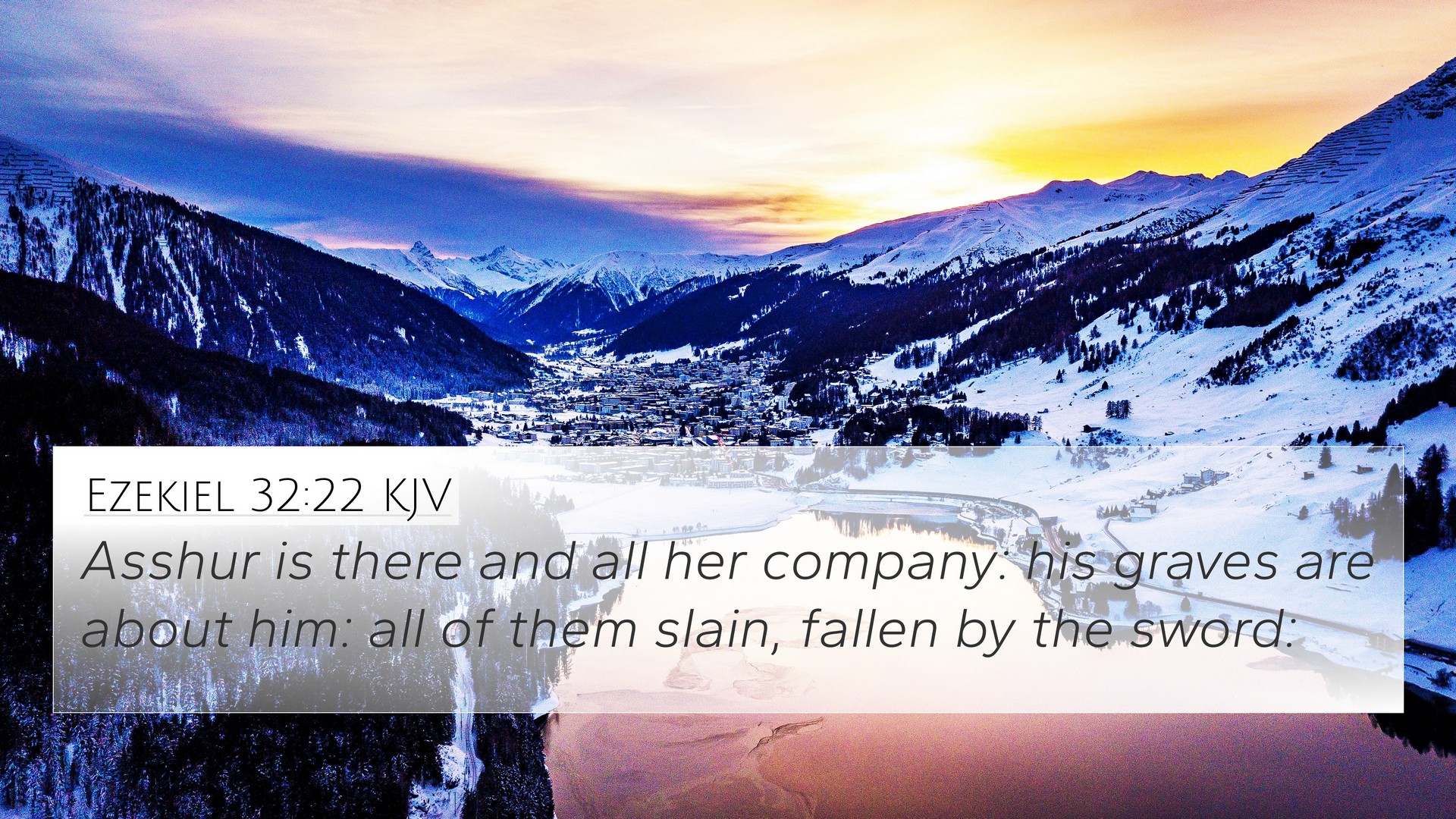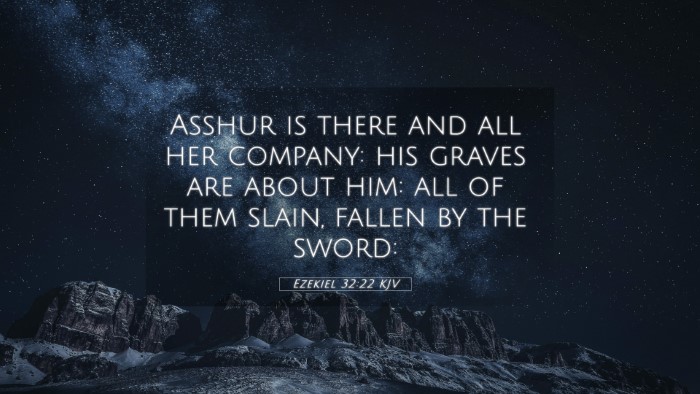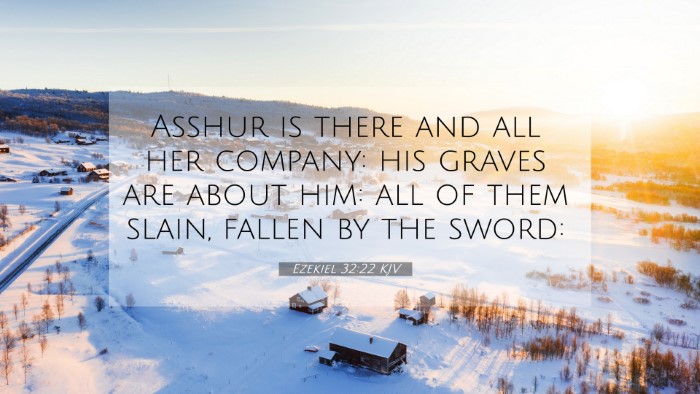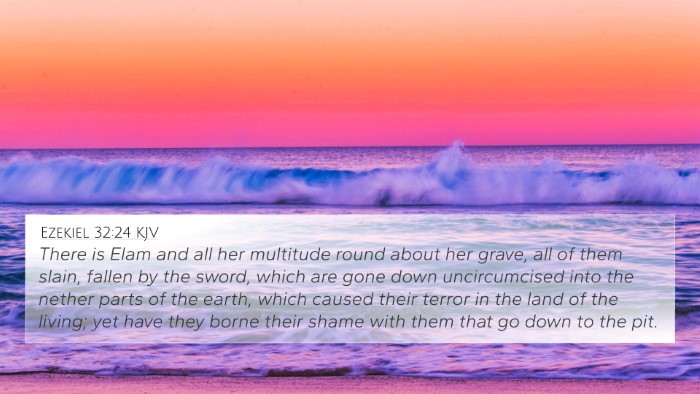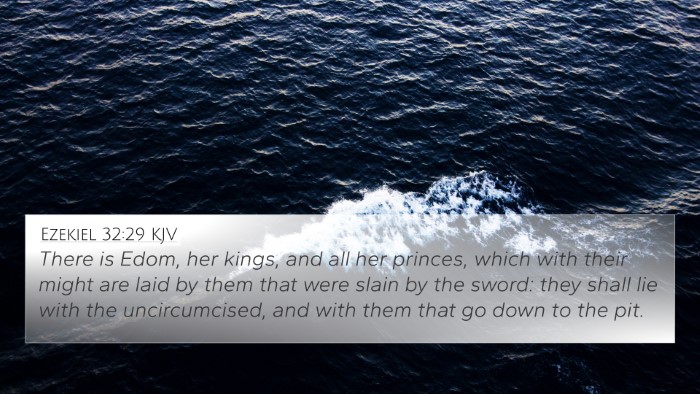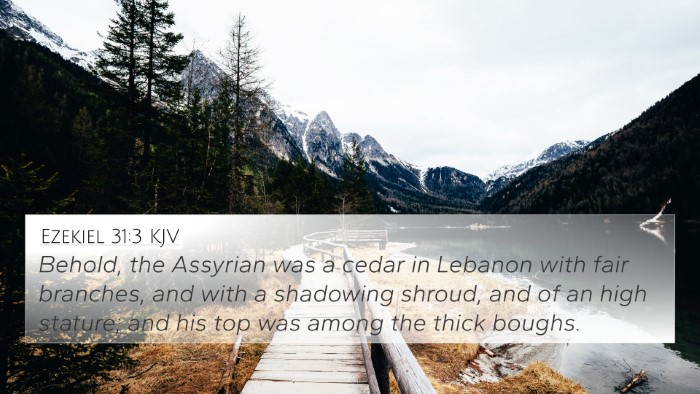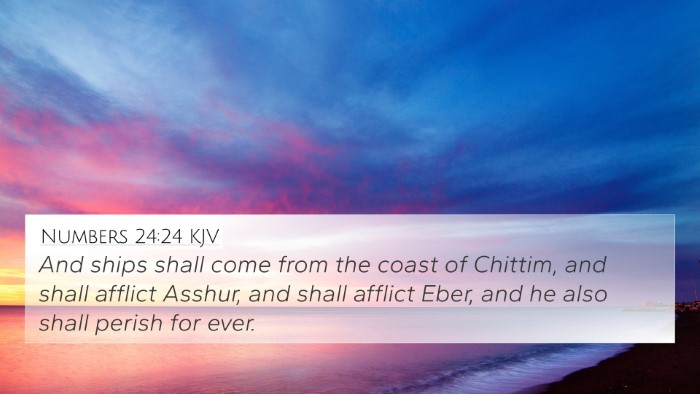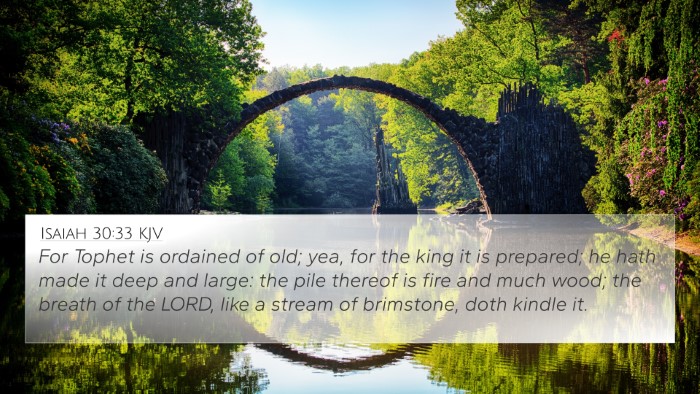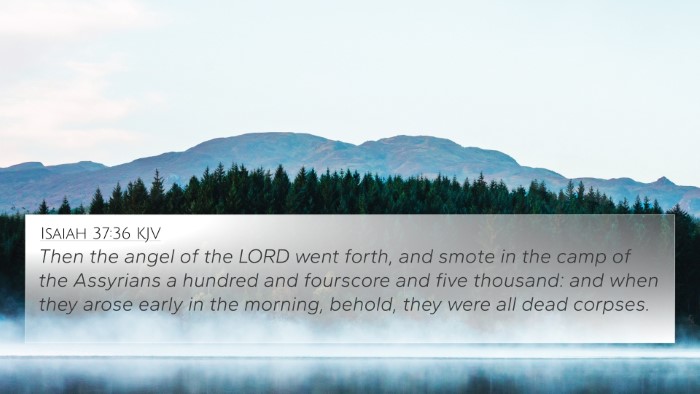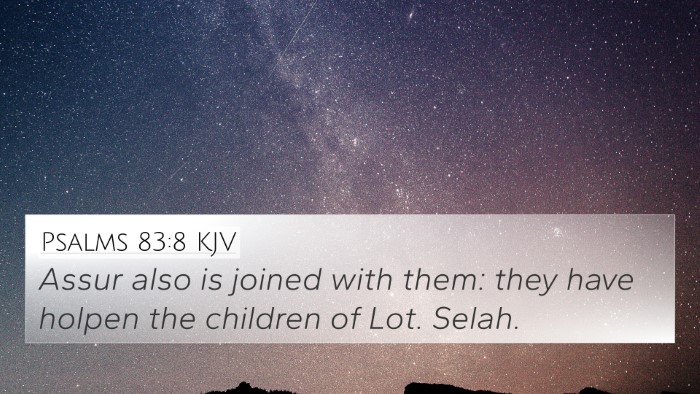Ezekiel 32:22 - Verse Summary and Meaning
Ezekiel 32:22 states: "There is Assyria, and all her company; their graves are about her: all of them slain, fallen by the sword." This verse reflects the profound themes of judgment, mortality, and the fate of nations as depicted throughout the Book of Ezekiel.
This verse appears as part of a larger passage in which God reveals to the prophet Ezekiel the fate of various nations and the consequences of their actions. The focus here is on Assyria, representing a mighty nation that has fallen. The graves mentioned symbolize the ultimate demise brought upon by divine judgment.
Analysis from Public Domain Commentaries
Matthew Henry’s Commentary
Matthew Henry interprets this verse within the context of God's sovereignty over nations. He explains that just as Assyria was a dominant power, its fall serves as a reminder that no nation can stand against God's will. The mention of graves symbolizes the finality of death and judgment. Henry emphasizes that the Lord's declarations are true and inevitable, which is a critical motif in the prophetic literature.
Albert Barnes’ Notes on the Bible
Albert Barnes provides insight into the historicity of Assyria’s downfall. He elucidates that Assyria, once a powerful empire, became a cautionary tale as it was judged for its pride and cruelty. Barnes connects this fate with the broader theme of divine justice that runs throughout Scripture. He argues that the graves signify the fearsome end that awaits those who oppose God's decrees and that they serve as a stark warning to other nations.
Adam Clarke’s Commentary
Adam Clarke discusses the imagery of graves related to Assyria's fate, interpreting this as a reflection of desolation. Clarke highlights that the remnants of Assyria serve as a visual cue of what happens to those who reject God's guidance. He draws connections to other scriptural instances where nations face divine retribution, suggesting a continual theme of accountability present throughout the history of God’s people.
Major Themes Explored
- Divine Judgement: The verse signifies the certainty of judgment upon nations that walk contrary to God's laws.
- Finality of Death: The mention of graves serves as a stark reminder of mortality and the ultimate consequence of sin.
- National Accountability: Just as Assyria faced repercussions for its actions, the text warns all nations of the imperative to heed divine commandments.
- Hope in Prophecy: The clarity of prophecy highlights God's desire for nations to repent and turn back to Him.
Bible Verse Cross-References
- Isaiah 10:5-6: God's judgment against Assyria as an instrument of His anger.
- Jeremiah 46:1-2: Prophecies concerning nations, including Egypt and its ruin.
- Ezekiel 31:16: The description of the mighty trees that represent nations cut down by the Lord.
- Revelation 19:11-16: The ultimate victory of God over all nations and their rulers.
- Daniel 2:44: God establishing His kingdom which will outlast all earthly powers.
- Habakkuk 2:16: The shame brought upon those who indulge in violence and pride.
- Proverbs 16:18: Pride going before destruction serves as a universal principle applicable in history.
- Romans 14:10: Emphasizing that every knee shall bow before God, tying back to accountability.
- Matthew 24:6-7: The signs of the end times that reflect upon nations' rise and fall.
- 1 Peter 4:17: Judgment beginning with God’s own people, indicating a broader theme of accountability.
Conclusion
Ezekiel 32:22 serves not just as a historical reflection of Assyria’s demise but also as a timeless reminder of the certainty of divine judgment against those who defy God’s authority. It resonates with the theme of accountability that permeates Scripture, connecting with various other texts that emphasize the consequences of nations' actions. The exploration of these themes leads us to a deeper understanding of inter-Biblical dialogues and the need for cross-referencing scripture for enriched study.
